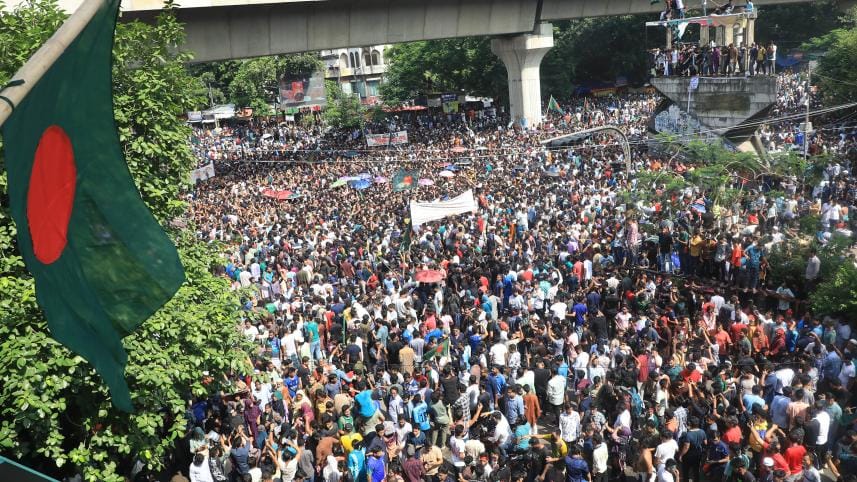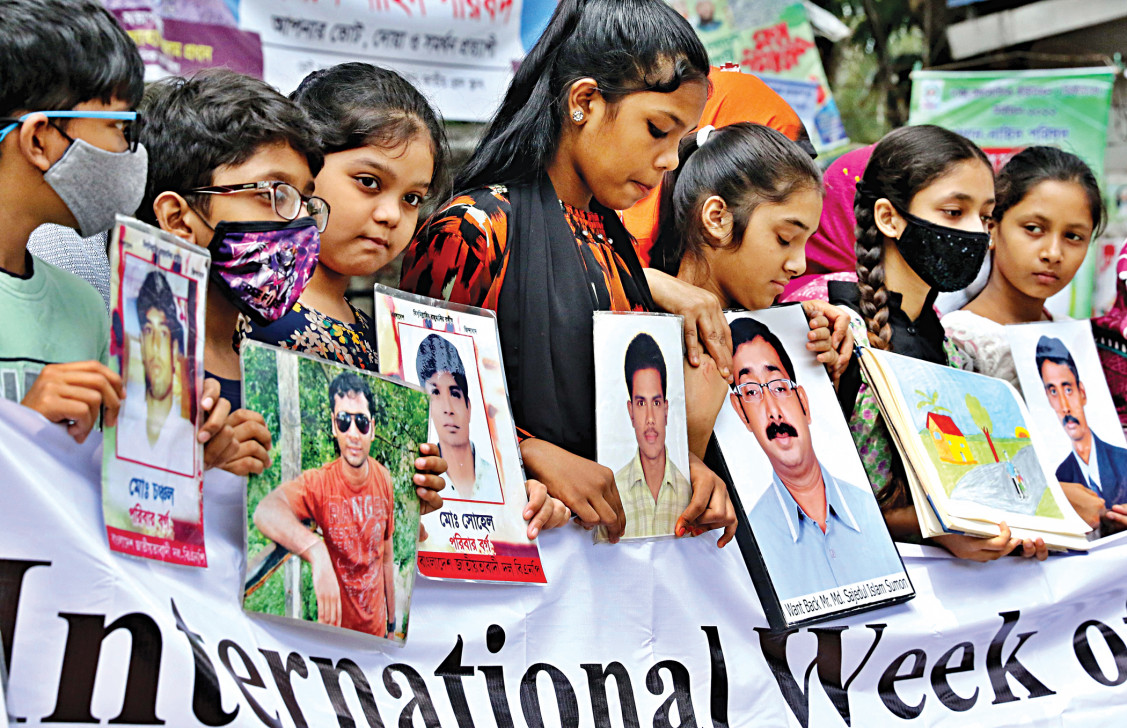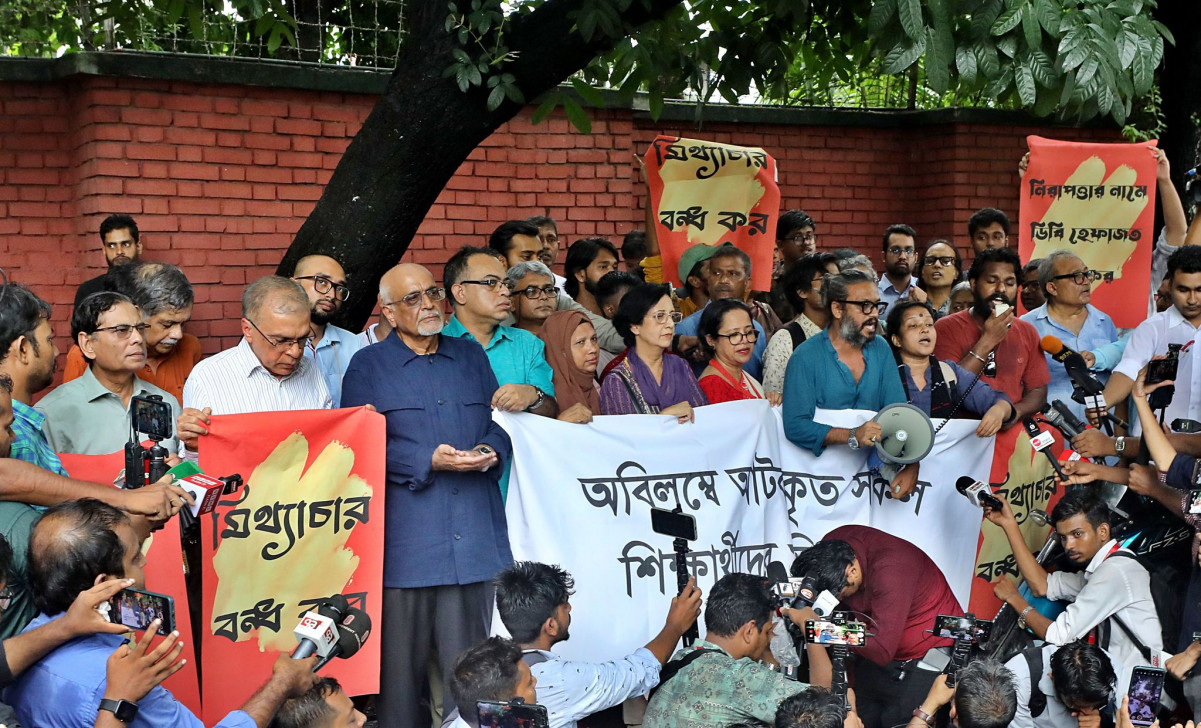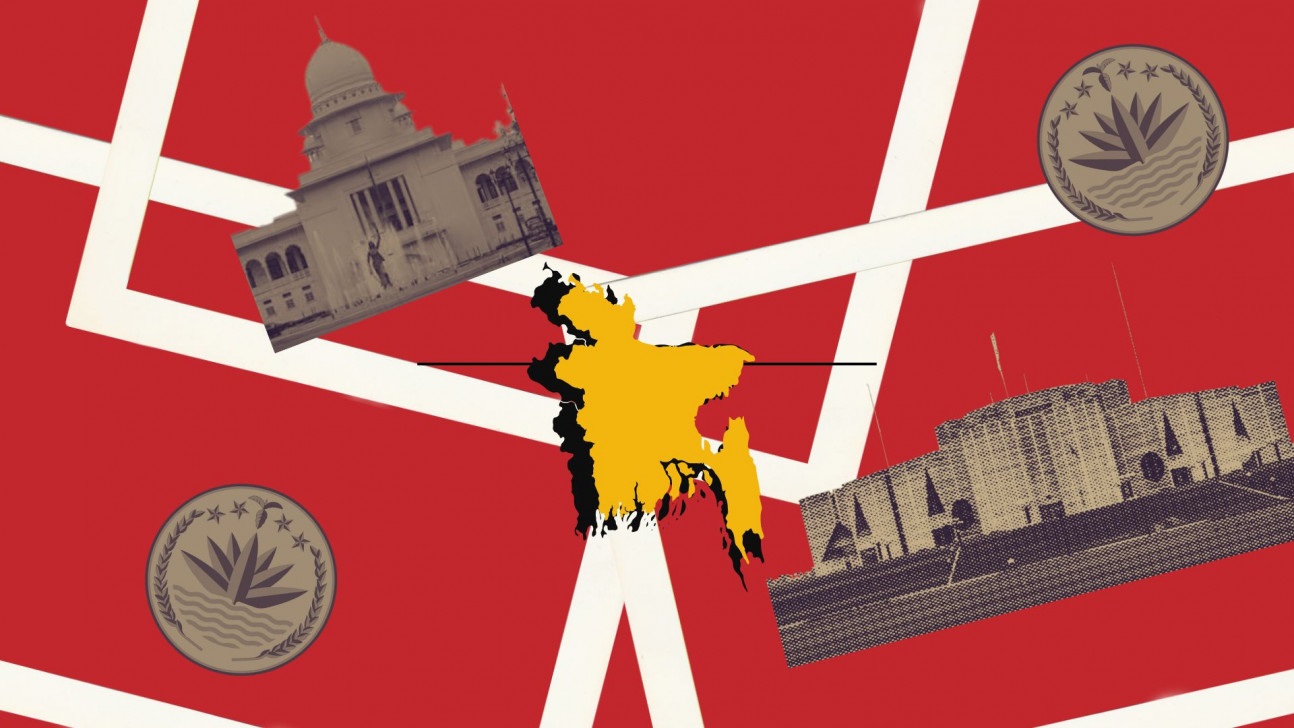Time for action to take post-uprising Bangladesh forward

Historically, revolutions often begin with an unified call for justice, equality, and change. These movements are driven by collective frustration against oppression and systemic inequities. Bangladesh's ongoing journey of reform reflects such transformative aspirations. What started as a student-led mass uprising with the noble aim of dismantling injustice now finds itself at a critical juncture. The nation must decide whether to safeguard the ideals that sparked this movement or allow them to be overshadowed by factionalism and opportunism.
At its heart, the uprising was a response to deep-seated inequalities. The initial days were marked by hope—a belief that unity could bring about meaningful change. Students, intellectuals, and reformers stood together, inspired by a vision of a better Bangladesh. However, history teaches us that revolutions are inherently fragile. The French Revolution, for example, began with cries for liberty and equality, but quickly descended into chaos due to internal divisions and opportunism.
Today, similar challenges threaten Bangladesh's revolution. What was once a united front has fractured. Different groups, each driven by distinct agendas, are vying for influence. This fragmentation undermines the original purpose of the movement. The parallels to George Orwell's Animal Farm, where noble ideals gave way to self-serving leadership, are hard to ignore.
Opportunistic elements have emerged, exploiting the July uprising's momentum for personal gain. These actors are adept at manipulating narratives, turning public grievances into tools for their benefit. Their actions, whether through financial exploitation or spreading discord, jeopardise the very foundation of hope the revolution was built upon.
Compounding this issue is the re-emergence of malign forces. These actors, reminiscent of Charles Dickens's corrupt aristocrats, have sensed an opportunity in the government's vulnerabilities. By exploiting public dissatisfaction, they aim to reclaim lost power. This growing boldness is evident in the surge of criminal activities across the country. Incidents like the murder of an elderly woman in her own home or crimes in supposedly secure neighbourhoods reveal a troubling erosion of public safety—a cornerstone of the uprising's promise.
Law enforcement agencies find themselves ill-equipped to address this rising chaos. Political interference, resource constraints, and low morale have left them struggling to maintain order. While the military's involvement has provided temporary relief, relying on armed forces to handle civilian law enforcement is neither sustainable nor ideal. The government must act decisively to empower the police and restore their credibility.
The path forward demands courage—not just from the government but from the very people who initiated this revolution. As Victor Hugo's Jean Valjean reminds us in Les Misérables, transformative change requires the integrity and resolve of good individuals. Students, intellectuals, and reformers must rise above divisions and work collectively to reclaim the movement's narrative.
The government, for its part, must prioritise restoring law and order. Bold investments in law enforcement, coupled with measures to ensure political neutrality in policing, are essential. Transparency in governance can help rebuild the trust that has been eroded. Regular updates on progress and clear communication with citizens will reinforce the government's commitment to the uprising's ideals.
Community involvement is another critical component. Local initiatives such as neighbourhood watch programmes and public awareness campaigns can foster a sense of collective responsibility. Addressing the socioeconomic roots of crime—poverty, unemployment, and systemic inequities—must also be central to the government's long-term strategy.
The military's role, while currently necessary, should remain temporary. Strengthening civilian institutions to manage law and order is vital for sustainable governance. A gradual transition away from military involvement will ensure that democratic processes remain intact and public trust in civilian leadership is restored.
Ultimately, the success of this revolution will not be measured by the fervour of its beginnings but by its ability to bring about lasting change. If Bangladesh can navigate this critical period with wisdom and resolve, it has the potential to emerge as a beacon of resilience and reform. The sacrifices of its revolutionaries must not be in vain.
As William Faulkner once wrote, "The past is never dead. It's not even past." The challenges facing Bangladesh today carry echoes of past struggles, but they also hold the promise of a brighter future. The July uprising's ideals—justice, equity, and unity—must be upheld at all costs. Failure to act decisively risks turning this moment of potential into a cautionary tale for future generations.
The road ahead is fraught with challenges, but it also offers a unique opportunity for transformation. Bangladesh stands at a crossroads. The decisions made now will shape its legacy for years to come. This is a moment not just for reflection but for action. Time is of the essence, and the responsibility to act rests on every citizen committed to the dream of a better Bangladesh.
Md Kawsar Uddin is associate professor in the Department of English and Modern Languages at the International University of Business Agriculture and Technology (IUBAT).
Views expressed in this article are the author's own.
Follow The Daily Star Opinion on Facebook for the latest opinions, commentaries and analyses by experts and professionals. To contribute your article or letter to The Daily Star Opinion, see our guidelines for submission.




 For all latest news, follow The Daily Star's Google News channel.
For all latest news, follow The Daily Star's Google News channel. 


Comments